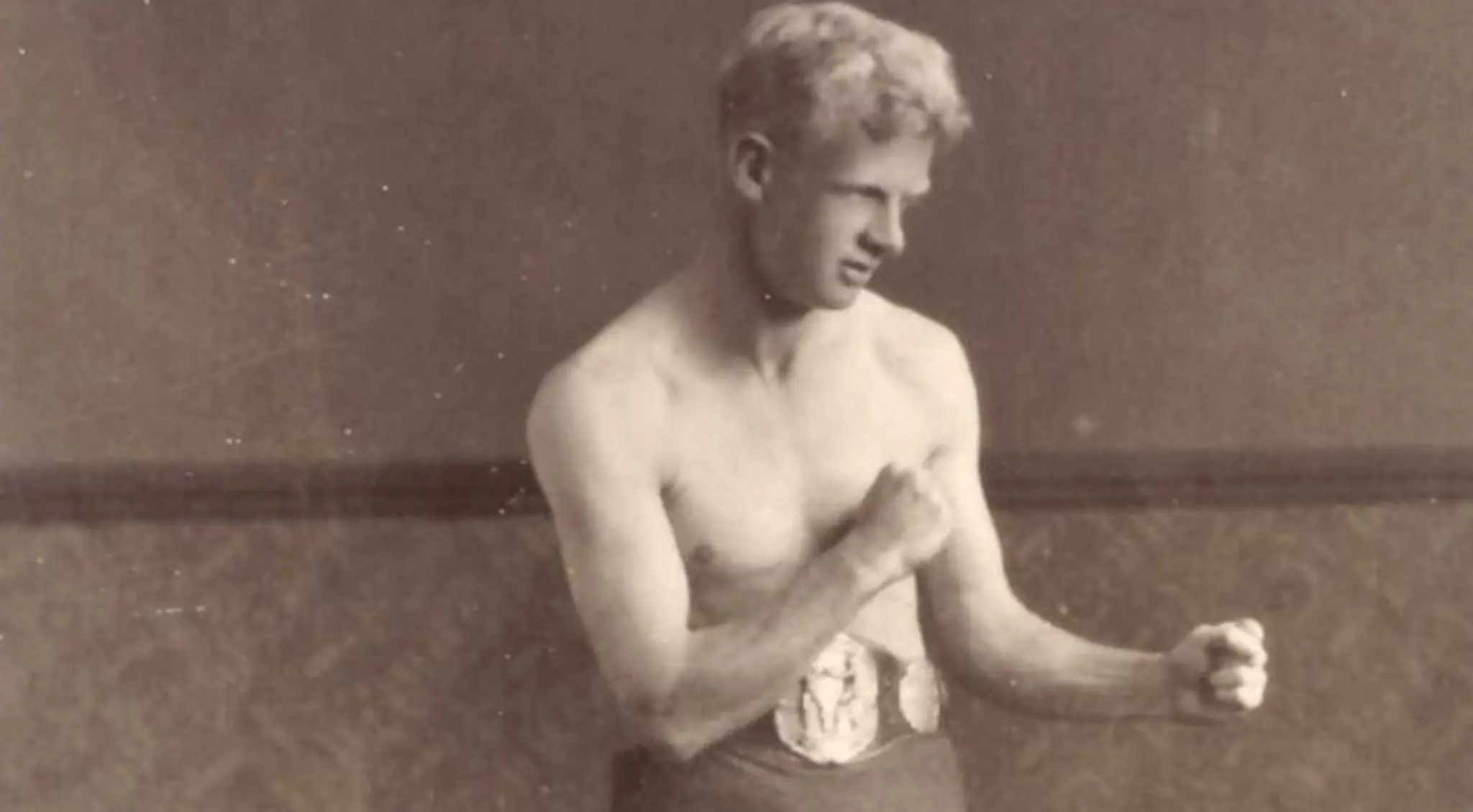Advertisement
Price loses SA title for leaning on Jack Ellmore

Jack Ellmore who fought from 1906 to 1926 and took part in eleven South African title fights was involved in one of the most bizarre decisions in the history of South African boxing.
On 4 October 1919 at the City Hall in East London he retained the South African bantamweight title when he won on a ninth-round disqualification in a scheduled 20 round fight against Charlie Price.
When the two fighters slipped to the boards in the ninth round with Price on top the referee promptly disqualified Price.
He explained his decision by stating that he had disqualified Price for “leaning on his man when down”.
Ellmore, who was born in Walthamstow, London on 22 April 1894 claimed to have in the region of 300 fights in a 20-year career. However, it is difficult to confirm this as, during the early days, fights and records were not always well documented.
There are reports that he took up boxing to supplement his income when he was still a printer’s apprentice. He was allegedly paid 25 pence for some of his early fights.
According to Boxrec he made his pro debut on 16 June 1906 winning on points over six rounds against George Williams which would have made him 12-years-old. However, the date and venue have never been confirmed.
His second fight was on 28 January 1911at the Wonderland in Whitechapel Road in Whitechapel, London, losing to Jim English in the 1st series of a 10 stone (63.50kg) Novice Competition. He also took part in further Novice Competitions at 9 stone (57.15kg).
At the time not much attention was given to weight limits and fighters had to concede a lot of weight sometimes. .
He continued to win and lose fights along the way and according to available records his last fight in England before travelling to South Africa was on 14 October 1911, a six-round draw against Fred Hammond at the famous, The Ring in Blackfriars Road, Southwark, London.
The Ring was built as Surrey Chapel in 1782-3 for the evangelical preacher Reverend Rowland Hill. In the late 19th century, then occupied by an engineering company, and from 1910 it was used as a boxing venue. The building was destroyed in a bombing raid during the Blitz in the Second World War.
Today an ultra-modern structure called “The Palestra” is built on the site.
In 1914 a Port Elizabeth bookmaker brought Ellmore to South Africa to have eight fights for a contracted purse of 200 pounds. He so enjoyed the country and the climate that he decided to settle here.
His first recorded fight in South Africa was on 14 April 1914 against a W. Robinson, winning on a third-round knockout of a scheduled 15 round fight at the Opera House in Port Elizabeth.
He won his next nine fights all at the Opera House except for a point’s victory over Bull Jacobs at the Constance Hall in Kimberley, in a vague claim for the South African featherweight title that never received recognition.
In possibly his first recognised South African title fight on 28 February 1917, he lost on points against Charlie Price for the South African bantamweight title and in a return fight 26 days later also for the South African title they fought to a draw.
Once again, he took on Price on 3 December 1919 and outscored the champion over 20 rounds for the South African bantamweight title after the disputed disqualification in their previous fight.
Ellmore then went on a six-fight winning streak which included successful defences of the South African bantamweight title before losing to Ronnie Dumar on a sixteenth-round retirement at the Empire Theatre in Kroonstad on 11 February 1918.
On 6 April 1918, he stopped old foe Charlie Price in the 15th round for the SA bantamweight title and went on a seven-fight winning streak before losing to W.H. van Rooyen on a seventh-round knockout in a challenge for the South African featherweight title.
In Durban, seven months later, he was knocked out in the fourth round by Billy Allen.
He was unconscious for six hours after the fight, but this did not stop him taking on Johnny Sullivan seven days later and beating him on points over 20 rounds.
This was the beginning of the end for this valiant little battler, only winning four of his last 12 fights.
His last fight was at the Manor Hall in Hackney, England against Lew Pinkus on points over ten rounds to finish with a reported record of 40-26-4; 12 (695 rounds) with only 6 of his losses coming inside the distance.
After retiring from boxing, Ellmore farmed near Berlin in the Eastern Cape and was active in coaching young fighters in East London, King William’s Town, Queenstown and Alice. He was also the boxing coach at Rhodes University for many years.
During the Second World War, he was in charge of the catering department of the Union Defence Force.
In later years he became manager of the Royal Johannesburg Golf Club before returning to the Eastern Cape to manage the East London Club before he retired.
He died in East London on June 12, 1978.
Advertisement